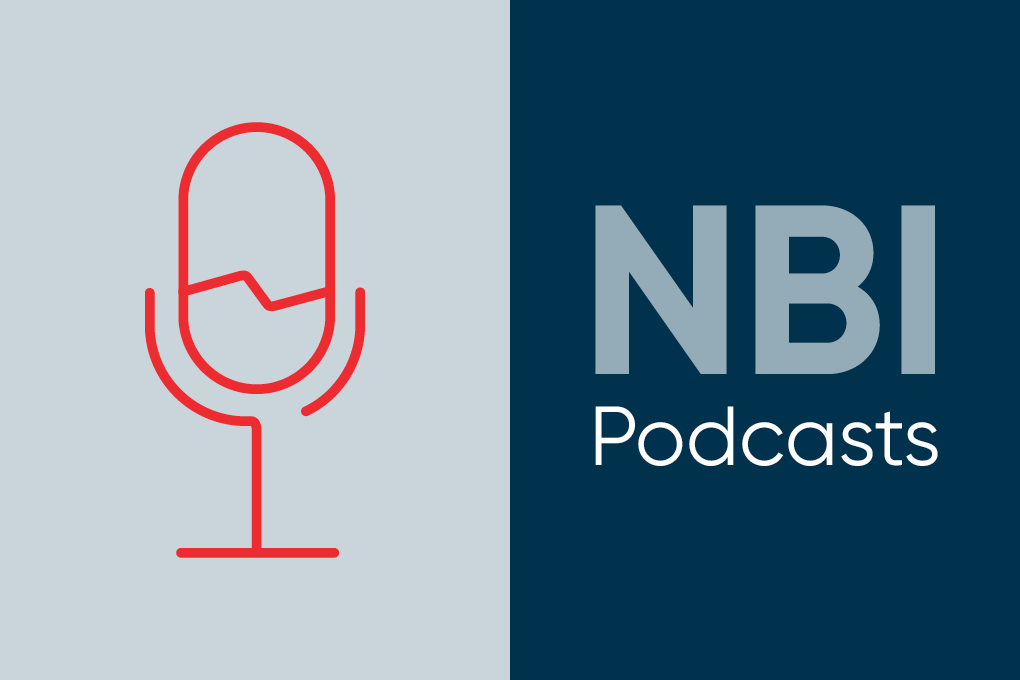Martin Lefebvre
Hi everyone and thank you for tuning into this NBI podcast. I'm your host, Martin Lefebvre, Chief Investment Officer at National Bank Investments. Today our topic is geopolitical risks and to provide some clarity on the subject, I'm joined by Angelo Katsoras, Geopolitical Analyst at National Bank Financial Markets. Angelo, thank you for taking the time to meet with us.
Angelo Katsoras
It's my pleasure.
Martin Lefebvre
Angelo, there's a lot we could talk about, and I know you could go for hours. Let's focus on the trade dispute and the potential impact of tariffs, if you will. Let's start with the why. What's the big plan? I mean, the U.S. economy seemed to be humming along just fine. So why the big change of policy by the Trump administration?
Angelo Katsoras
Well, it's been something which Trump has amplified. There's been a long-term use within the U.S. of not making some of these key commodities, whether it's making ships, whether it's making semiconductors, whether it's making medicines. And this is in a lower trust world where reliance on your adversaries for this stuff is not sustainable. The goal is to bring this back. But the challenge is that if you don't do something like shipbuilding for over 20, 30 years, you lose the collective memory to do it. Your workers retire, your professors retire, the program shuts down. This is a longer-term process. It's not something you can rush in a few months. And maybe the challenge is being correctly identified, but the strategy is more of a longer term one. It's not some kind of shorter-term move you can make.
Martin Lefebvre
It'll take some time. It's just something that was almost already started under Biden with the Chips Act and all of that in a certain way.
Angelo Katsoras
Yes, Biden used subsidies, Trump used tariffs, and he took another step. Don't forget, even when Biden came to power, he kept all of Trump's tariffs, and he added to them. And then the subsidies kind of forced us to promise over hundred billion dollars in subsidies in Canada to try to compete with the subsidies. And then Trump took it to another level. This is part of a trend that Trump has maybe fast forwarded.
Martin Lefebvre
For a moment, Trump seemed to be going after everybody and then the focus was more on China and then he backed off from all of that. Can there really be decoupling with the world's manufacturer?
Angelo Katsoras
It'll be a very long-term process. And I always argued that while I think Trump made a strategic mistake to focus on us, he wasted political capital, even market correction capital. The main trade tensions will be between China and the United States. And you'll see, it'll take a very long time. The chips, some of the semiconductors, are coming back at great cost of subsidies. They're going to try to build back their shipping industry. This will take a very long time as well, but I think it will occur over a very long term and it will be costly to bring some of this stuff back,. just like trying to relearn what you forgot to do.
This will continue. And that's something we have to take into account, and we’ll be within America's zone of influence. A lot of these tariffs, to countries like Vietnam, it wasn't really about tariffs. It's basically telling countries like Vietnam, if you want access to our market of a lower tariff, you can no longer allow Chinese companies to export from your country secretly. There's some of these tariffs that have this type of goal behind it.
Martin Lefebvre
What about Canada? Trump went from NAFTA to USMCA without really gaining anything it seems. What do you think will come out of the current negotiations?
Angelo Katsoras
First of all, when it comes to negotiations, I think it's important to take into account that while we can try and be on the margins to diversify, it's going to be very hard. We signed free trade agreements with dozens of countries, and it hasn’t changed anything. You want to sell, for example, food to Europe, it can be very difficult. They have very different environmental regulations. As Premier of Ontario said, if you want to sell nickel somewhere else, you got to compete with Indonesian nickel that costs 30 % less. You want to sell steel somewhere else, then you compete with China. Overall, it's very difficult. 60 % of our population lives within 60 kilometers of the U.S. border. And so, it's very hard to do. And then to make it even more difficult, every major region in the world has its own version of what is made in America. Everyone's trying to bring back their supply chains from Europe to China to Brazil to Japan.
We're really within America's own influence. The negotiations will come. We'll have to put greater restrictions on imports from China. We will probably make concessions on lumber and agriculture. Maybe if we're lucky, there'll be a quota on aluminum and steel exports as opposed to tariffs, maybe 95% as opposed to 100%. Because when Biden lifted it on us four years ago, he said you couldn't export more than you historically did, because they want to expand steel making and aluminum capacity for the shipbuilding sector. Because right now China has the capacity to make 230 times the ships that America makes. They have got a long way to go.
That's the challenge for us. And even if we do make some concessions, we'll still probably have better access to the U.S. market than any other countries we have free trade agreements with. I think, yes, on the margins you can diversify, but in a world of zones of influence, this is what the zone that we're in. We kind of have to accept that.
Martin Lefebvre
I totally agree with you. And if we go a little further in the diversification thematics, we also hear a lot about intra provincial barriers. Do you think that anything could be done? It seems easier than done on that front too.
Angelo Katsoras
Some of the promises have begun saying, look, if you recognize our credentials for our workers, we'll do the same for you. And then it becomes the challenge over the longer term and maybe, unfortunately, it takes a recession to force major changes because every sign of protectionism in a province, for that province, is a cash cow. It could be the liquor board. could be there. It could be their construction companies, for example. Yes, there could be some progress, but it'll be more longer term. It'll take more of an economic pressure point to make some of this integration go through. So yes, I think there's more that we'll see, we're perhaps underestimating how difficult it will be to make progress on this file.
Martin Lefebvre
If we go back to the plan, we talked about bringing back manufacturing capacity, reducing the trade deficits with China and other parts of the world. And then there's another thing that was put forth by Trump which is to raise revenue to address the issue of the deficit in the U.S. The big and beautiful as he called it tax bill was just adopted by Congress. Do you think the Senate will do too or there'll be some problems? I think it's got to be adopted by early August or something like that.
Angelo Katsoras
He would like to have it by July so we could celebrate it earlier. They have it up until the midterm elections, I guess, but he liked to get it done sooner than later. Now, with the worries over the bonds, the worries over the debts, even some of this stuff has maybe made more shorter term. The Senate will also negotiate, they'll create its version of the bill, and the two sides are going to have to negotiate. And maybe worries over the bond yield will force them to water down some of their agenda. And this is what it comes down to.
And I think another part of the bill that we're not focusing on is the impact on Canada, because even if you water down some of this, there's a couple of things that could really impact Canadian companies. Number one, lowering taxes for companies that manufacture in the United States. He promised 21% to 15%, will it be 18%? And expensing capital equipment 100% from the moment you do the capital investment. Therefore, if you're Canada, you have a challenge. In addition to dealing with subsidies from Biden, tariffs from Trump, deregulation, you got to deal with the potential of lower taxes over the border. It's another motivation for companies to want to set up a second operation in the U.S. And what's good for that company, if it's done on a Canadian wide scale, it would be a disaster for Canada. And that'll be a challenge for the Canadian government to deal with that, right?
One more thing I forgot to mention about the negotiations is that one thing worse than the actual threat of a tariff can be this never-ending threat of a tariff. It's better for us to negotiate sooner than later because most companies that invest or come here to Canada come to sell into the United States. We can't have that hanging over. I think Trump said back in 2018 with Mexico, I'll negotiate forever while I'm negotiating with Mexico and no one's going to open a car factory there. We can't let this hang. We have to deal with the negotiations sooner than later.
Martin Lefebvre
I agree with you. And if we go back to deregulations and the tax rate going from 21% to 15% for manufacturers in the U.S. Will that force Mark Carney's hands to deregulate here in the country and lower the corporate tax rate in the country as well?
Angelo Katsoras
This is the challenge for him. He might have to do this but think of the difficulties he's facing. He's promised tax cuts for people. He's promised tax breaks on houses. He says he was going to find efficiencies in terms of cutting the budget. If it stays a minority government, he has to make some promises to the Bloc Québécois or the NDP. And that's why he didn't want to have a budget, because he sees everything he has got to do in a potentially recessionary environment.
And to make it more complicated, as you just mentioned, you might have to deal with what does it mean to compete with the United States and what measures can you take? Because I don't want to have what we call the “lumberfication” of the Canadian economy because the lumber sector has been targeted by tariffs for decades and every lumber company has open operations in the United States eventually to try to like cushion the blow. And you don't want to be spread across different sectors because this is how you empty out things.
It's a challenge. It'll be a challenge for him to make all these sacrifices, hence the reason why he didn't want the budget right away. He was pressured, I guess, to do it in early fall. There's a lot of things here to deal with. We're not used to budget cuts anymore. We're used to borrowing with low interest rates. And now we have to make cuts. And I always argue that the first government to be forced to make cuts, they're going to be punished politically because we're just not used to it. It's been 10 or 15 years where you could have your cake and eat it too, right?, with low rates, meaning you could borrow more, put your hand on the oven and it wasn't burned. And now you're relearning what after 10 or 15 years, we forgot.
Martin Lefebvre
Now borrowing rates are on the rise and there's pressure on benchmark yields in the U.S. It's going to be a little bit more difficult, and we'll have a lot of things to watch in the near future. We’ll stop here for now, Angelo, and we'll give you the opportunity to come back after the 90-day pause on reciprocal tariffs and see what the situation is like at that moment.
Thank you very much for participating today, Angelo.
Angelo Katsoras
It was my pleasure. Thank you.
Martin Lefebvre
And everyone, thank you for listening and we'll talk again in about a month's time. Thank you very much.


 Martin Lefebvre
Martin Lefebvre


